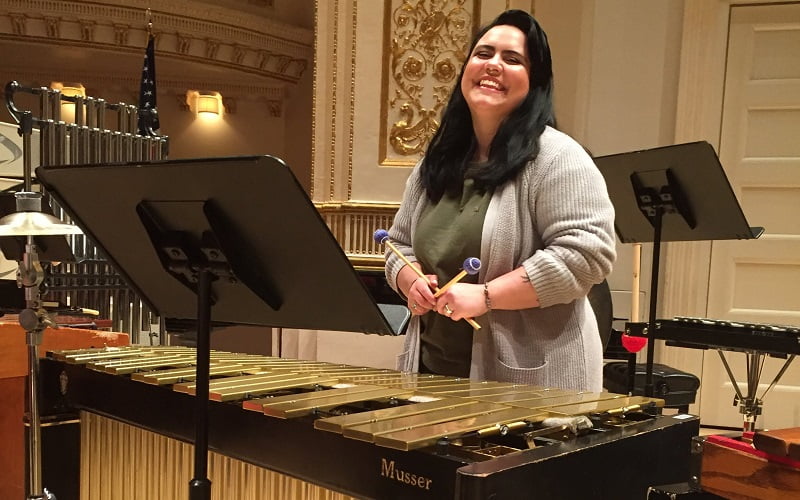Quick Links
Music Department

Music Department Overview
Students in the music program enjoy close mentoring and a collaborative atmosphere where students and faculty perform, study, and learn together. Close student/faculty interaction allows students the opportunity to conduct individual research and performance projects, whether at the Library of Congress or the University of Vienna, Austria.
Please note: Hartwick College focuses on offering fall, January, and spring term undergraduate courses in person, however circumstances may require us to offer a small number of courses in this department through distance education. In times of emergency, following regulatory guidelines, all classes may temporarily need to be delivered through distance education, including online. We also offer a slate of courses online in the summer to help our students make progress towards their degrees. With support from an academic advisor, students needing particular courses may have other online options as well. If you have questions about the way courses are delivered in your program, please contact your Department or Program Chair.
Department of Music Events
Event
Apr 27 2024
3:00 pm – 5:00 pm
Senior Recital
Benjamin Hulbert, guitar; Anderson Theater
Event
Apr 30 2024
7:30 pm – 9:30 pm
Hartwick College College Choir
Anderson Theater; Steven Nanni, director
Event
May 06 2024
7:30 pm – 9:30 pm
SUNY – Hartwick Orchestra
Anderson Theater; Benjamin Aldridge and Uli Speth, directors
Event
May 07 2024
8:00 pm – 9:30 pm
Hartwick College Rock Ensemble
Anderson Theater; Wyatt Ambrose, director
Event
May 08 2024
7:30 pm – 9:30 pm
Hartwick College Jazz Combo and Jazz Ensemble
Anderson Theater; Evan Jagels and Gregg Norris, directors
Ready to study music?
Students interested in music may choose to earn a degree in music or a degree in music education.
A minor in music offers an opportunity to blend a passion for music with another area of study.
Review all the requirements in the College Catalog.
Music Courses
Hartwick’s expert music faculty are future-focused. Courses offered prepare students to make a difference in the world of tomorrow.
Review the current course offerings in the College Catalog.
Special Opportunities
Your experience with the Department of Music begins with a campus visit and an audition.
As a student in the department you will have many opportunities to create, perform, and share music.
Still have questions?
Contact Daniel Hane, Department Chair & Artist in Residence
haned@hartwick.edu